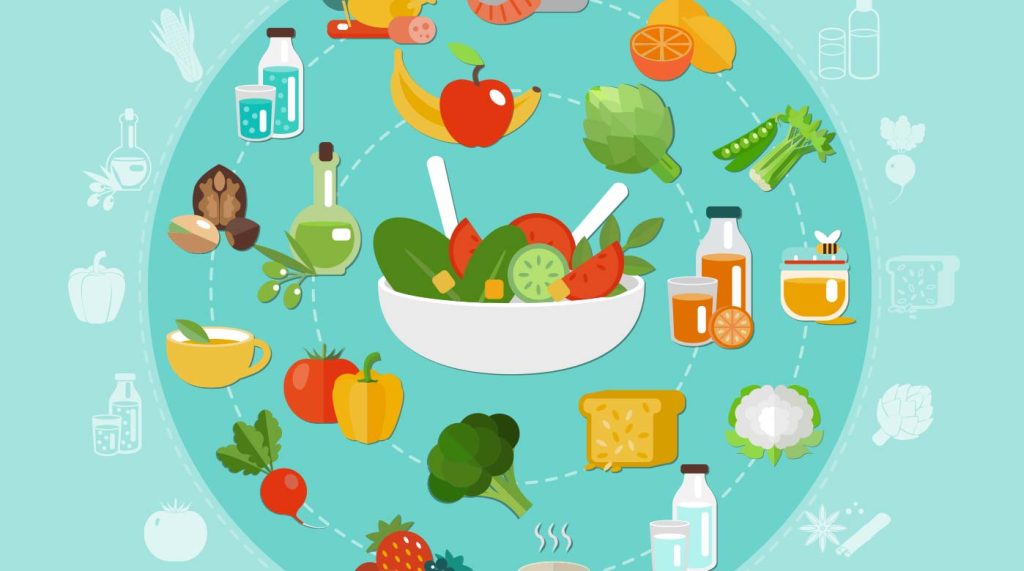The Mediterranean diet, renowned for its heart-healthy benefits, has also been found to reduce the formation and recurrence of kidney stones. Rich in fruits, vegetables, whole grains, and healthy fats like olive oil, this diet promotes optimal hydration and reduces the risk factors associated with kidney stone development. Incorporating the Mediterranean diet into daily life may offer a natural and effective approach to preventing kidney stones, making it a valuable choice for those at risk.

What is the best diet to prevent kidney stone formation and recurrence?
The Mediterranean diet aligns well with these principles, making it a strong candidate for preventing kidney stones. However, individual needs may vary, so it’s advisable to consult with a urologist or dietitian for personalized recommendations based on specific risk factors and health conditions.
The best diet to prevent kidney stone formation and recurrence generally includes:
- Adequate Hydration: Drink plenty of water throughout the day to dilute urine and prevent stone formation. Aim for at least 2-3 liters (8-12 cups) of water daily.
- Balanced Calcium Intake:Consume a moderate amount of calcium from dietary sources (e.g., dairy products, leafy greens) rather than supplements, as adequate dietary calcium can prevent excessive oxalate absorption.
- Low Oxalate Foods: Limit intake of foods high in oxalates, such as spinach, rhubarb, beets, and nuts, to reduce oxalate levels in the urine.
- Reduced Sodium:Decrease the consumption of salt and processed foods to lower urinary calcium excretion, which can help prevent calcium-based stones.
- Adequate Potassium: Include potassium-rich foods like bananas, avocados, and sweet potatoes to help reduce urinary calcium levels.
- Increased Citrate: Incorporate citrus fruits (e.g., oranges, lemons) to increase urinary citrate levels, which helps prevent the formation of calcium stones.
- Balanced Protein Intake: Avoid excessive animal protein (meat, fish) which can increase calcium and uric acid levels in urine. Focus on plant-based protein sources.
- Healthy Fats: Include healthy fats from sources like olive oil and nuts, which have anti-inflammatory properties and support overall health.
- Whole Grains: Eat whole grains and other high-fiber foods to support digestive health and potentially lower the risk of stone formation.
- Regular Meals: Avoid skipping meals and ensure a balanced intake throughout the day to maintain stable nutrient levels.
- Overall Health Benefits: Beyond kidney stone prevention, the Mediterranean diet is associated with numerous other health benefits, including reduced risk of cardiovascular disease, diabetes, and obesity, all of which can indirectly reduce the risk of kidney stones.
These factors combined make the Mediterranean diet highly effective in preventing the formation and recurrence of kidney stones.
Literature information on how the Mediterranean diet reduces the formation and recurrence of kidney stones
Here’s a summary of literature findings on how the Mediterranean diet reduces the formation and recurrence of kidney stones:
- Fluid Intake and Hydration: Studies indicate that the Mediterranean diet, rich in water-dense foods like fruits and vegetables, contributes to increased fluid intake. This dilutes urine, lowering the concentration of stone-forming substances such as calcium, oxalate, and uric acid .
- Citrate and Calcium Oxalate Stones: Research highlights that a higher intake of citrus fruits, a staple in the Mediterranean diet, leads to increased urinary citrate levels. Citrate acts as an inhibitor of stone formation by binding to calcium, thus preventing the formation of calcium oxalate stones .
- Oxalate Absorption and Excretion: The Mediterranean diet is associated with lower consumption of high-oxalate foods. Clinical studies have shown that reduced dietary oxalate can lower urinary oxalate levels, decreasing the risk of calcium oxalate stone formation .
- Sodium and Calcium Excretion: Research indicates that the diet’s low sodium content reduces urinary calcium excretion. Excess sodium increases calcium excretion, which can contribute to stone formation; thus, a lower sodium intake may reduce this risk .
- Dietary Calcium: Studies support that a balanced calcium intake, as recommended in the Mediterranean diet, prevents oxalate absorption in the intestines. This reduces the amount of oxalate that reaches the kidneys, thereby lowering the risk of stone formation .
- Potassium and Urinary Calcium: The diet’s emphasis on potassium-rich foods has been shown in research to reduce urinary calcium levels. Potassium may help prevent stone formation by promoting the excretion of less calcium in the urine .
- Anti-inflammatory Properties: Literature suggests that the anti-inflammatory properties of the Mediterranean diet, due to its high content of healthy fats (e.g., olive oil) and antioxidants, may help prevent kidney stones by reducing inflammation that could contribute to stone formation .
- Gut Microbiome and Oxalate Degradation: Emerging research points to the role of the Mediterranean diet in promoting a healthy gut microbiome, which may enhance the breakdown of dietary oxalate in the intestines, reducing oxalate absorption and subsequent stone formation .
- Blood Sugar Regulation: Studies have found that the Mediterranean diet’s impact on maintaining stable blood sugar levels may indirectly reduce the risk of kidney stones, as diabetes and metabolic syndrome are associated with an increased risk of stone formation .
These findings underscore the multifaceted benefits of the Mediterranean diet in preventing kidney stone formation and recurrence.
Summary
The Mediterranean diet, rich in fruits, vegetables, whole grains, and healthy fats, has been shown to significantly reduce the formation and recurrence of kidney stones. By promoting hydration, increasing urinary citrate levels, and providing a balanced intake of calcium and potassium, the diet helps prevent the development of stones. Additionally, its anti-inflammatory properties and low sodium content further contribute to lowering the risk. Adopting the Mediterranean diet offers a natural and effective strategy for individuals prone to kidney stones.
Prof. Dr. Emin ÖZBEK
Urologist
Istanbul- TURKIYE



Leave a Reply